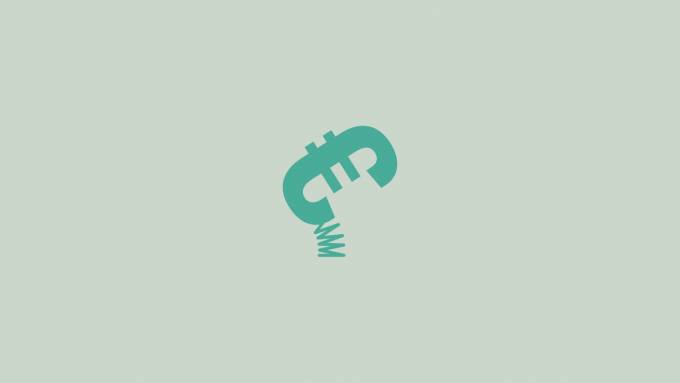
How to declare cryptocurrencies and NFTs on your Spanish tax return
Types of taxes and tax rates for cryptocurrency mining and cryptocurrency investments or NFT transactions. Get up to speed on tax issues regarding crypto assets!
5 min read
Cryptocurrencies and NFTs are gaining popularity in Spain—and the Spanish tax authorities recently introduced new laws to regulate them. Here, we’ll explain how your digital assets should be declared on your tax return and help you keep up to date with cryptocurrency taxation in Spain.
Cryptocurrency taxes in Spain
Almost 4.5 million Spaniards have invested in virtual currencies—and most of the time, they’re investing over €1,000. With that much money involved, it’s no surprise that the state has taken action. Effective July 9, 2021, the Spanish government introduced new fraud-prevention regulations, which increased taxation of cryptocurrencies in Spain through Personal Income Tax (Impuesto sobre la Renta de las Personas Físicas–IRPF).
Under Law 11/2021, taxpayers with cryptocurrencies must inform the Spanish Treasury about their balances and transactions. One of the key changes with this new law is that taxpayers are required to also report any cryptocurrencies held in “wallets” (digital storage spaces for cryptocurrency) that are located abroad. This means that if your tax domicile is in Spain, you must inform the Spanish Tax Agency about all cryptocurrencies you hold worldwide. To do this, you should include Form 720 (Declaración sobre bienes y derechos situados en el extranjero—declaration of foreign-held assets) with your tax return. Reporting your digital assets is only required once you hold a certain amount of cryptocurrency, though.
Crypto so easy

Taxation of cryptocurrencies in Spain
If you generate €1,000 or more from cryptocurrency transactions, these gains become part of your taxable income. You’ll need to declare them in the capital gains and losses section of your IRPF.
To figure out how much income tax you might owe on your cryptocurrency investments, you first need to calculate the difference between the acquisition cost of your cryptocurrencies and their current market value. In other words, you need to calculate how much you generated in profits. The amount of profit determines the tax rate: If you incurred losses on your cryptocurrency investments, you can offset these against any profits you’ve made. For example, if you earned €3,000 on your investments in some cryptocurrencies but lost €1,000 on others, the taxable amount in your cryptocurrency income tax return will be €2,000. Up to 25% of your capital gains can be used to offset losses. As a general rule, there are no other limits on offsetting losses.
Taxation of cryptocurrency mining
Tax laws relating to cryptocurrencies are still in the early stages. However, economic activities conducted in Spain—whether by individuals or organizations—are generally subject to Economic Activities Tax (Impuesto sobre Actividades Económicas—IAE). The tax applies regardless of the sector or the amount of profit. Cryptocurrency mining is considered a type of economic activity.
This means that if you earn income from mining cryptocurrencies, you will likely have to make an IAE declaration to the Spanish Tax Agency. It might also be necessary to submit Form 036/037 and pay taxes on your profits.
In order to reduce your tax burden, you can also deduct expenses you incurred while generating this income. The expenses have to be associated with the specific economic activity. After subtracting your expenses, you’ll only pay income tax on the remaining amount.
Bear in mind that time is a factor in determining the amount of your profits from cryptocurrency mining. The value in fiat money (such as euros or dollars) is set at the time of mining. In other words, if your crypto coins are worth €350 at the time you collect them, you’ll have to pay tax on that amount—even if those same coins are only worth €120 by the time you submit your quarterly tax return.
NFT taxes in Spain
The tax laws for NFTs are even less established than those for cryptocurrencies, but they’re already becoming more developed. Currently, the tax authorities take a similar approach to NFTs as they do to works of art or collectibles.
Taxes on NFTs primarily depend on who is performing the transaction. If an NFT was sold by a taxpayer, such as a company or a self-employed individual, the standard 21% value-added tax (VAT) will be added. (Autonomous cities and regions like Ceuta, Melilla, or the Canary Islands are exceptions to this rule.) In all other cases, an 8% property transfer tax (Impuesto sobre Transmisiones Patrimoniales—ITP) will apply. In these situations, the purchaser is responsible for paying the tax.
On the seller’s side, NFTs must also be declared in the IRPF if you make capital gains on them. The sale of an NFT could constitute an economic activity, and then the sellers or creators of the NFT would have to pay income tax on their earnings. The tax rate can be up to 47% for incomes over €300,000. But again, any relevant expenses can be deducted.
If the creator or seller of the NFT is an individual, they have to declare their profits in the capital gains and losses section of their IRPF. This income will then be taxed in the same way as income generated from cryptocurrency investments. The tax regulations on cryptocurrency and NFTs in Spain are still new, but keeping on top of things will help you avoid any unpleasant surprises further down the line!
Discover N26 Metal

Pay your taxes with N26
N26 is the first online bank to offer a streamlined process for paying taxes and fees to the Spanish tax authorities (Agencia Estatal de Administración Tributaria—AEAT). All of our customers can make fast and secure payments to AEAT through our app. Just head to the Send money tab and select Other payments. Then, tap Payments to AEAT and settle your taxes—it’s that easy!
Plus, saving and managing your money couldn’t be simpler with Spaces sub-accounts for N26 Premium customers. Up to 10 of these virtual piggy banks are included with the N26 Smart bank account, the N26 You international bank account, and the N26 Metal premium account. Divide and organize your money effortlessly to cover expenses like rent and taxes—or even save for your next dream vacation.
And since we are the first neobank becoming a collaborating entity with the Social Security system in Spain you can collect your benefits in your N26 account and also pay your freelancer tax and make other payments to the administration through us.
FAQs
What are cryptocurrencies?
Cryptocurrencies are currencies that exist virtually and are protected by cryptography. Although different coins may have different uses, many coins can be used for trading, storing value, or purchasing certain goods and services. You can learn more about the basics of crypto in our beginner’s guide to cryptocurrency.
What are NFTs?
Non-Fungible Tokens (NFTs) are unique digital assets such as images, videos, GIFs, or music. Similar to cryptocurrencies, NFTs are typically certified using blockchain technology. As the name suggests, NFTs aren't consumable or replaceable. They're unique, non-interchangeable assets that come with proof of ownership.
In which box should cryptocurrencies be declared?
If you have cryptocurrencies, you should include them on your Spanish tax return in box 389 as “Otras ganancias patrimoniales a integrar en la base imponible del ahorro” (other capital gains to be included as taxable assets).
When should cryptocurrencies be declared?
If you trade cryptocurrencies in a professional capacity, you’ll be subject to the tax regulations on economic activities. If you exchange virtual currencies and fiat money or swap amounts between various cryptocurrencies, you most likely need to declare your capital gains and losses in your IRPF. Your declaration should be included in your tax return for the fiscal year when the transaction occurred. And once you own a certain amount of cryptocurrencies, even if you don’t sell or trade them, you may have to declare them as financial assets.
Do cryptocurrencies need to be declared?
Yes—if you’ve sold virtual currencies in the past fiscal year, you must include these transactions in your tax return.
Find similar stories
By N26
Love your bank
A simple guide to road tax in Spain
4 min read
Related articles
These might also interest youWhat are VAT Rates and how many are there in Spain
General VAT, reduced VAT, super-reduced VAT—is it all a mystery to you? We’ve got everything you need to know about VAT rates in Spain.
Tax relief–how different European countries tax working from home
Many countries have tax regulations with breaks that actually benefit remote workers. Find out how you could benefit, what conditions apply, and where—so you can stay on top of your finances.
Paying your self-employment taxes in Spain with your N26 Business account
Find out whether you can pay your self-employment taxes in Spain with N26, and what other features you might want to consider when looking for the right business account.


